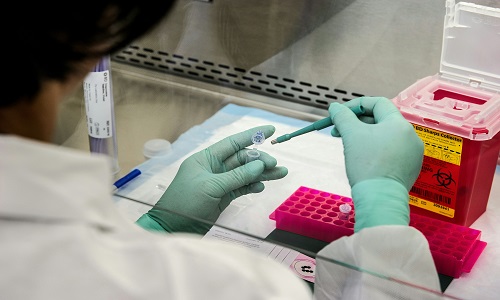Introduction
Proteins are the building blocks of life, playing crucial roles in various biological processes. They are responsible for carrying out essential functions such as catalyzing chemical reactions, transporting molecules, and providing structural support. The diversity and complexity of proteins are a result of genetic variation, which can occur through a process called protein mutagenesis. In this blog post, we will explore the fascinating world of protein mutagenesis, its significance in understanding genetic variation, and its applications in various fields.
Understanding Protein Mutagenesis
Protein mutagenesis refers to the process of introducing specific changes or mutations in the DNA sequence that encodes a protein. These mutations can alter the amino acid sequence of the protein, leading to changes in its structure and function. Protein mutagenesis can occur naturally through genetic recombination, DNA replication errors, or exposure to mutagenic agents such as radiation or certain chemicals. It can also be induced in the laboratory using techniques like site-directed mutagenesis.
Significance of Protein Mutagenesis
Protein mutagenesis plays a crucial role in understanding genetic variation and its impact on protein structure and function. By studying the effects of specific mutations on proteins, scientists can gain insights into the relationship between genotype and phenotype. This knowledge is essential for understanding the molecular basis of genetic diseases, drug resistance, and evolutionary processes.
Protein mutagenesis also allows researchers to investigate the structure-function relationship of proteins. By introducing mutations in specific regions of a protein, scientists can determine the role of individual amino acids in protein folding, stability, enzymatic activity, and protein-protein interactions. This information is invaluable for designing new drugs, engineering proteins with improved properties, and understanding the mechanisms of protein evolution.
Applications of Protein Mutagenesis
Protein mutagenesis has numerous applications in various fields, including medicine, biotechnology, and agriculture.
In medicine, protein mutagenesis is used to study the genetic basis of diseases. By introducing disease-associated mutations into proteins, scientists can investigate how these mutations affect protein function and contribute to the development of diseases such as cancer, Alzheimer’s, and cystic fibrosis. This knowledge can lead to the development of targeted therapies and personalized medicine.
In biotechnology, protein mutagenesis is used to engineer proteins with desired properties. By introducing specific mutations, scientists can modify the activity, stability, and specificity of enzymes, making them more efficient for industrial processes such as biofuel production, pharmaceutical synthesis, and waste treatment. Protein mutagenesis is also used to create novel proteins with entirely new functions, expanding the possibilities for biotechnological applications.
In agriculture, protein mutagenesis is used to improve crop plants. By introducing mutations in key genes involved in traits such as disease resistance, yield, and nutritional content, scientists can develop crops with enhanced characteristics. Protein mutagenesis techniques, such as CRISPR-Cas9, have revolutionized plant breeding by allowing precise and targeted modifications in the plant genome.
Challenges and Future Directions
While protein mutagenesis has provided valuable insights into genetic variation and protein function, there are still challenges to overcome. One major challenge is predicting the effects of mutations on protein structure and function accurately. Computational tools and machine learning algorithms are being developed to address this challenge, but further advancements are needed.
Another challenge is the limited understanding of the relationship between genotype and phenotype. Although protein mutagenesis can reveal the effects of specific mutations, understanding how multiple mutations interact and contribute to complex phenotypes remains a complex task.
In the future, advancements in protein mutagenesis techniques and computational tools will continue to drive our understanding of genetic variation and protein function. This knowledge will have profound implications for personalized medicine, biotechnology, and agriculture, leading to the development of innovative therapies, sustainable technologies, and improved crop varieties.
Conclusion
Protein mutagenesis is a powerful tool that allows scientists to unravel the secrets of genetic variation and understand the relationship between genotype and phenotype. By introducing specific mutations in proteins, researchers can gain insights into protein structure, function, and evolution. The applications of protein mutagenesis in medicine, biotechnology, and agriculture are vast and hold great promise for improving human health, advancing technology, and ensuring food security. As our understanding of protein mutagenesis continues to grow, so does our ability to harness its potential for the benefit of society.


